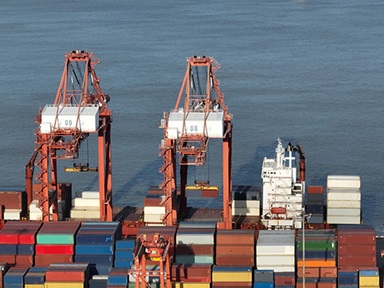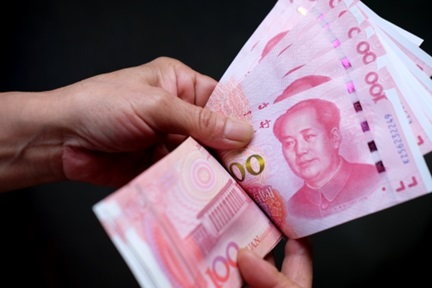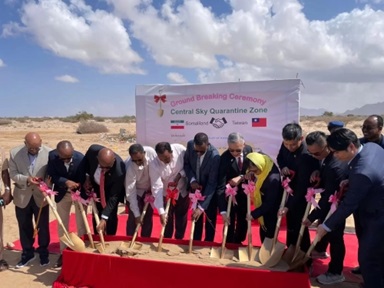Emirati fast-food chain to open multiple outlets in Kenya
Highlights the growth of the fast-food market in the country and Africa more broadly

The Dubai-based halal fast-food chain ChicKing is set to open 30 outlets in Kenya over the next five years, beginning with the first in Mombasa in June. This marks the latest geographic expansion of the Emirati chain, which has seen rapid growth in recent years. But it equally highlights the size of the market in Kenya – and Africa more broadly – where demand for fast food has increased significantly in recent years.
With the Kenya move ChicKing’s store count is now set to grow beyond 230 and expand the firm’s presence to 28 countries. Among the jurisdictions it currently operates in are Angola, Cote d’Ivoire, Djibouti, Nigeria, and Somalia, with plans to expand – in Africa alone – to Democratic Republic of Congo, Egypt, Mauritius, South Africa, Sudan, and Tanzania.
The market is not without competitors. In Kenya alone, there is an established presence of the United States-based Kentucky Fried Chicken (KFC), Burger King, Subway and Domino Pizza chains, as well as Japan’s Toridoll and select South African outlets. The presence of these brands in Kenya is a testament to the popularity of fast-food in the country.
Africa has seen notable growth of fast-food industry (also known as quick-service restaurants) in recent years. Taken together with the Middle East the fast-food market is expected to grow from an estimated US$30.8bn in 2021 to US$59.1 in 2026. Leading the charge is South Africa where the market size is projected to reach US$4.9bn by 2026.
The expansion has been driven by a young population (the market), rapid urbanisation (the access), and rising disposable income (the means). Aspirational taste also plays a role. Brands such as McDonalds and KFC are familiar (and desirable). As economies grow people have less time to dedicate to making food, especially amid decreasing household sizes.
In fact, as far back as 2011, Yum Brands (the owner of KFC, Taco Bell and others) declared that Africa could be the next China when it comes to the size of the fast-food market. The parallel drew on the above-mentioned demographic factors but also the fact that chicken is the main animal protein consumed. This has yet to pass, owing mainly to the inherent problem of comparing an essentially homogeneous market (China) with a collection of as many as 54 different markets, each with their own unique local environments and different rules of doing business.
Other enduring challenges for fast food operators in Africa include underdeveloped supply chains, inconsistent power supply, and local partnerships potentially fraught with political exposure. Incidentally, two years before he became President Cyril Ramaphosa held the franchise for all the McDonald’s in South Africa. Another challenge to newcomers is the extent to which established players can both crowd-out and price-out new market entrants. McDonalds and Starbucks have been accused of crushing competition by engaging in price wars. In due course fast food distributors may be forced to provide healthier food options in response to market demand and stricter regulatory control. Obesity is rising in Africa. Between 1980 and 2017 Ghana’s obesity rate jumped from less than 2% of the adult population to 13%, while Kenya’s has increased by 100% since 1990.
Asian fast-food chains with the appetite (so to speak) to weather these challenges in a bid for their share of a growing African market have a potential unique advantage: the underserviced halal fast food market. ChicKing, for example, credits much of its success on the continent with their appeal to an Islamic consumer base. And while the company does not necessarily change its menu notably between countries, there is much to be said about international chains tailoring their offerings for local tastes. In Nigeria, for example. Dominos sells a pizza topped with local staple Jollof rice.
References
‘UAE-based fast food chain ChicKing plans Kenya entry in June’, Business Daily Africa, 12 May 2022
‘Africa: the next frontier for fast food?’, Financial Times, 07 October 2011
‘Middle East And Africa Fast Food Market’, Market Data Forecast, January 2022
‘South Africa Fast Food Market Expected to Reach $4.9 Billion by 2026’, Allied Market Research, 2018
‘Is Fast Food Eating Away at Africa's Progress?’ Think Global Health, 13 January 2022
‘Yes, South African president Ramaphosa used to own McDonald’s franchises’, Africa Check, 20 April 2021
‘How Africa is giving fast food a new spin’ CNN, 11 December 2015







